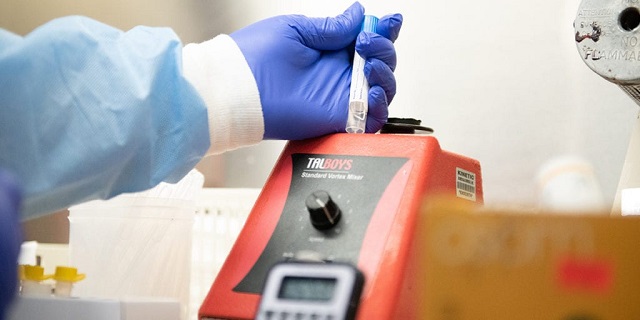Molecular Targeted and Gene Therapy
Monthly molecular tumor board discuss genetic variants of high-risk and relapsed childhood cancers.

Prognosis for high-risk and relapsed acute leukemia remains poor. Despite advancements in risk classification, multi-agent chemotherapy intensification, stem cell transplantation, and supportive care guidelines, outcomes are often not optimal. In the last several years, improved understanding of disease biology and critical molecular pathways in ALL and AML has yielded a variety of new drugs to target these specific pathways.
Therefore, Hackensack Meridian Joseph M. Sanzari Children’s Hospital now sequences all high-risk and relapsed leukemia patients and discusses their findings during monthly molecular tumor boards, which are also attended by pathologists and geneticists. This ensures that patients with an “actionable” genetic variant, for which a targeted agent may be beneficial, are identified.
Current studies in progress include:
- Joseph M. Sanzari Children’s Hospital is participating in phase III trial studies to determine how certain drugs work in combination with chemotherapy in treating pediatric patients with acute leukemia. Two COG trials for newly diagnosed childhood ALL at Joseph M.Sanzari Children’s Hospital will look at the benefit of adding Blinatumomab and Inotuzumab, which target specific markers on leukemia cells, to conventional chemotherapy.
- In addition, a COG trial for newly diagnosed childhood AML at Joseph M. Sanzari Children’s Hospital will compare standard therapy to a novel agent, CPX-351 with the addition of Gilteritinib, a FLT3 targeted agent for those with the mutation.
This program is supported by Tackle Kids Cancer and the Lisa B. Fishman Foundation.

